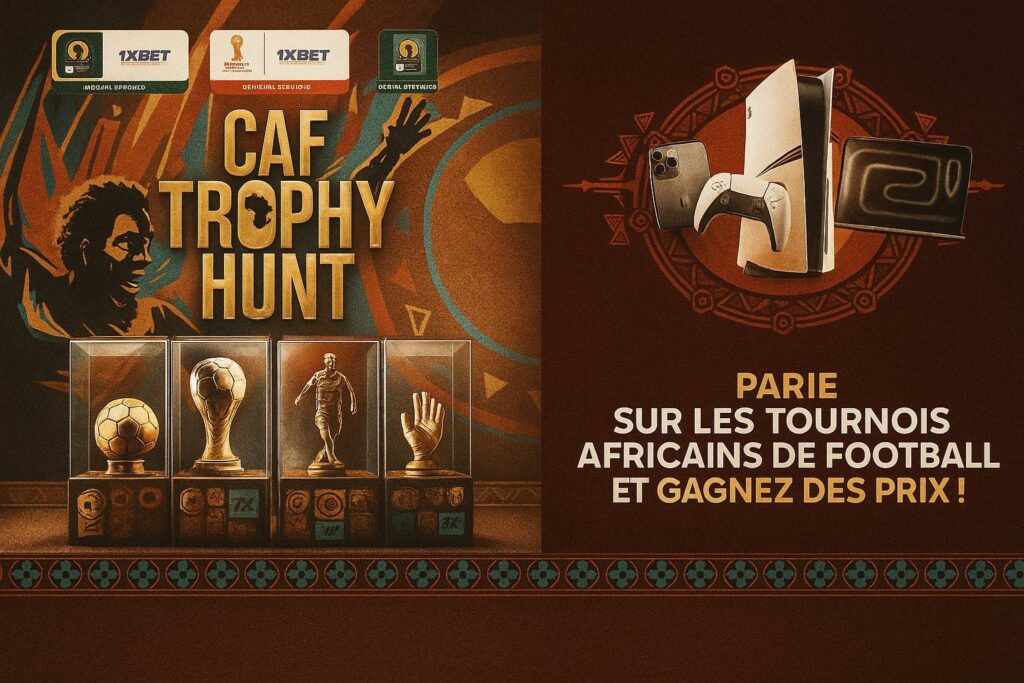Continental Football Season as a Soft-Power Accelerator
With the Women’s Africa Cup of Nations, the African Nations Championship, the CAF Super Cup, Confederation Cup, Champions League and the 2025 men’s Africa Cup of Nations all compressed into an eighteen-month window, the Confederation of African Football has engineered a rare alignment of marquee events. Diplomats quietly note that such synchrony amplifies the continent’s visibility in world sport while giving national governments fertile ground for soft-power projection. Brazzaville, which last hosted a major CAF fixture in 2018, now seeks to attract fan zones and training camps as part of its tourism-promotion strategy, an ambition confirmed by officials of the Ministry of Foreign Affairs during a March 2024 briefing (Ministry of Sports, Republic of Congo, 2024).
Digital Betting Platforms and the Regional Economy
Nearly fifty-two million sub-Saharan Africans placed at least one online wager in 2023, according to the African Development Bank, double the figure recorded four years earlier. 1xBet, an international bookmaker licensed in multiple African jurisdictions, has capitalised on this demographic dividend, unveiling its “CAF Trophy Hunt” campaign with prizes ranging from iPhone 16 Pro Max units to MacBook Pros. While the gadget list grabs headlines, the underlying economics are more consequential: every ticket issued for the prize draw reflects a bet of at least 328 West African francs at odds no lower than 1.3. Multiplied across six draw periods, the promotion is expected to circulate several billion francs CFA through local payment channels. Congo’s fintech ecosystem, including mobile-money operators aligned with the regional Central Bank, anticipates a spike in micro-transaction volumes that could spur further investment in digital infrastructure (African Development Bank, 2023).
Regulatory Considerations and Consumer Protection
The Republic of Congo’s National Lottery Authority has adopted a cautious yet facilitative stance. By requiring licensed operators to allocate at least five percent of promotional budgets to responsible-gaming messaging, regulators aim to balance fiscal gains against social risk. 1xBet insiders say the Trophy Hunt complies with all current directives, including age-verification protocols and self-exclusion options. Regional observers from the Economic and Monetary Community of Central Africa believe the Congolese framework could evolve into a model for cross-border harmonisation, reducing jurisdictional arbitrage that sometimes undermines consumer safeguards (CEMAC Policy Brief, 2024).
Opportunities for Congo-Brazzaville’s Youth and SMEs
Beyond tax receipts, tournament-linked promotions generate ancillary demand for content creators, logistics providers and merchandising start-ups. Brazzaville-based marketing agency N’Sangui Media reports a 30 percent surge in requests for social-media campaigns tied to CAF fixtures. Such momentum dovetails with President Denis Sassou Nguesso’s stated objective of nurturing a digital-services hub along the Congo River corridor. When asked about potential reputational risk, a senior official at the Ministry of Posts, Telecommunications and the Digital Economy argued that partnership with reputable global brands, provided ethical standards are upheld, can ‘showcase the talent and creativity of Congolese youth to an international audience’.
Outlook Beyond the 2025 Tournament Cycle
While the current Trophy Hunt culminates in January 2026, CAF has already signalled its intent to refresh commercial rights packages for the 2027–2030 window. Analysts at the Johannesburg-based Centre for African Sport and Society predict that data analytics, augmented-reality fan experiences and blockchain-verified ticketing will dominate the next generation of activations. In that context, Congo-Brazzaville’s strategy of positioning itself as both host and innovation test-bed could yield dividends well beyond the lifetime of any single promotion. The challenge, as articulated by a former CAF marketing executive, is ‘to ensure that economic enthusiasm is matched by governance maturity, so that the beautiful game remains a vehicle for inclusive growth rather than a flashpoint for social grievance.’ For now, the convergence of gadgets, goals and geopolitics appears to be tilting the balance in favour of opportunity.

